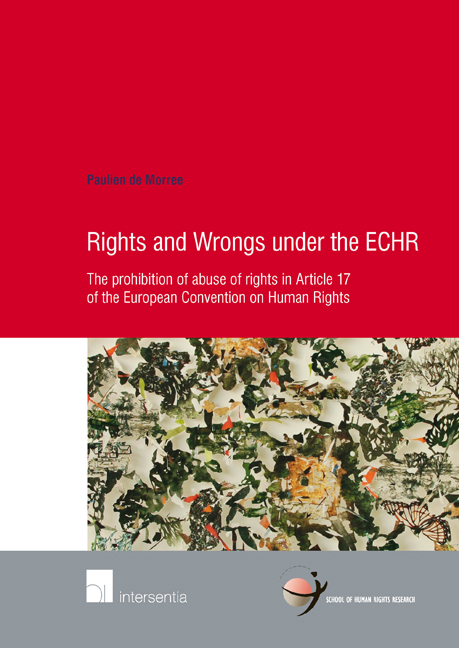
- Cited by 3
-
Cited byCrossref Citations
This Book has been cited by the following publications. This list is generated based on data provided by Crossref.
Wiczanowska, Hanna 2021. Does gender equality constitute one of the ‘underlying values of the ECHR’ in the light of Article 17 ECHR?. Przegląd Europejski, p. 83.
POLAT GORAL, Betül 2022. Bireysel Başvuru Hakkının Kötüye Kullanılması Yasağı. Marmara Üniversitesi Hukuk Fakültesi Hukuk Araştırmaları Dergisi, Vol. 28, Issue. 1, p. 256.
Šajmovič, Peter 2022. Priama aplikácia „gilotínového ustanovenia“ článku 17 Európskeho dohovoru o ochrane ľudských práv a základných slobôd pri nenávistných prejavoch a jej úskalia. Časopis pro právní vědu a praxi, Vol. 30, Issue. 2,
- Publisher:
- Intersentia
- Online publication date:
- December 2017
- Print publication year:
- 2016
- Online ISBN:
- 9781780685427
- Subjects:
- Law, Human Rights
- Series:
- School of Human Rights Research


